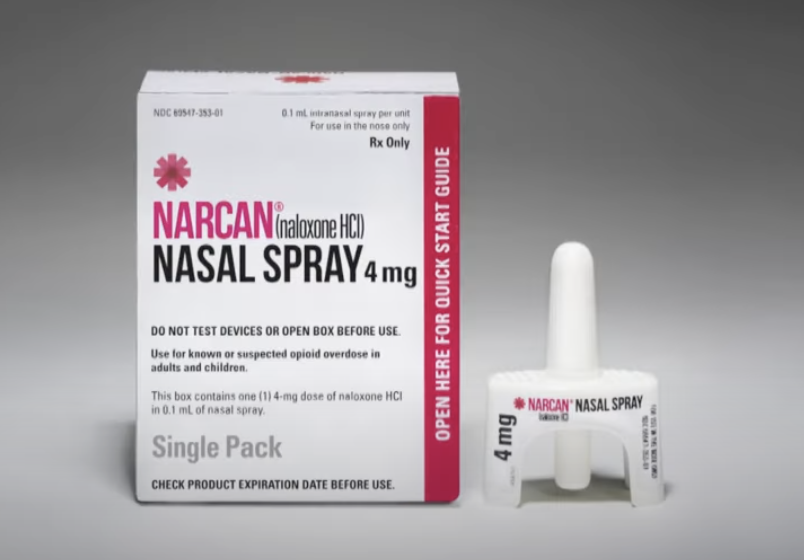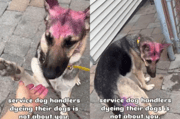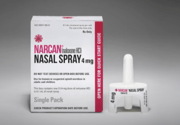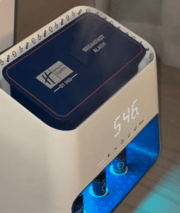
In a groundbreaking move to combat the rising tide of opioid-related deaths, New South Wales pubs, clubs, and other licensed venues will soon be required to stock naloxone - a life-saving medication that can rapidly reverse opioid overdoses.
The initiative, announced by the NSW Government, marks Australia's first mandatory naloxone program for licensed establishments and could serve as a model for other states grappling with similar public health challenges.
The program represents a significant expansion of NSW's existing Take Home Naloxone initiative, which has already distributed the medication through pharmacies and health services. With opioid-related deaths reaching alarming levels across Australia, health officials view the venue-based distribution as a critical intervention that could save countless lives.
Understanding Naloxone: The Overdose Antidote
Naloxone, also known by the brand name Narcan, is an opioid antagonist that can quickly restore normal breathing to a person whose breathing has slowed or stopped due to an opioid overdose. The medication works by rapidly displacing opioids from receptor sites in the brain, effectively reversing the life-threatening effects of overdose within minutes.
'Naloxone is remarkably safe and easy to use. It's literally a case of spray and save—anyone can administer it, even without medical training.'
The nasal spray formulation being distributed to venues is particularly user-friendly, requiring no injection or complex medical procedures. A single dose sprayed into one nostril can reverse an overdose within 2-5 minutes, though multiple doses may be needed for stronger opioids like fentanyl.
The Scope of Australia's Opioid Crisis
The decision to place naloxone in licensed venues comes against the backdrop of a worsening opioid crisis in Australia. According to the Australian Bureau of Statistics, opioid-induced deaths have risen by over 50 per cent in the past decade, with prescription opioids now involved in more deaths than heroin.
Key Statistics on Opioid Deaths in Australia
- Over 1,100 opioid-related deaths recorded annually
- 70 per cent of victims are aged between 30-59 years
- Prescription opioids involved in 3 out of 4 deaths
- NSW records the highest number of opioid deaths nationally
For older Australians, the statistics are particularly concerning. Many seniors are prescribed opioid medications for chronic pain management, increasing their risk of accidental overdose. Additionally, the combination of opioids with alcohol—a common scenario in licensed venues—significantly increases overdose risk.
How the Venue Program Will Work
Under the new regulations, licensed venues in NSW will be required to:
- Stock naloxone nasal spray in easily accessible locations
- Train staff in recognizing overdose symptoms and administering naloxone
- Display signage indicating naloxone availability
- Maintain records of naloxone use and report to health authorities
The program will be rolled out in phases, beginning with larger venues in metropolitan areas before expanding to regional establishments. Venues will receive the naloxone supplies free of charge through the existing Take Home Naloxone program infrastructure.
Signs of Opioid Overdose
Unconsciousness or inability to wake up
Slow, shallow, or stopped breathing
Blue lips or fingernails
Gurgling or snoring sounds
Pinpoint pupils
Training and Implementation
A crucial component of the program is comprehensive staff training. All venue employees will undergo mandatory education sessions covering:
- Identifying signs of opioid overdose
- Proper administration of naloxone nasal spray
- Emergency response procedures
- Legal protections for those administering naloxone
The NSW Government has partnered with harm reduction organizations to develop training materials specifically tailored for hospitality workers. Online modules will be available to accommodate different work schedules, with in-person sessions for management staff.
Legal Protections and Liability
To encourage participation and remove barriers to life-saving intervention, the NSW Government has implemented strong legal protections. The Good Samaritan provisions ensure that venue staff who administer naloxone in good faith are protected from civil liability, even if the person was not actually experiencing an opioid overdose.
Did you know?
Did you know?
Naloxone only works on opioid overdoses and has no effect if opioids are not present in the person's system. This means it's safe to administer even if you're unsure whether someone has taken opioids—it won't cause harm if given unnecessarily.
Funding and Sustainability
The expansion of the naloxone program represents a significant investment in public health infrastructure. The NSW Government has allocated $13 million over four years to support the venue-based initiative, covering:
- Naloxone medication costs
- Training program development and delivery
- Public awareness campaigns
- Program evaluation and monitoring
The funding ensures venues will not bear any direct costs for participating in the program, removing potential financial barriers to implementation.
Community and Industry Response
The announcement has received mixed reactions from various stakeholders. Public health advocates have largely praised the initiative as a pragmatic response to a growing crisis.
'This program acknowledges the reality that people use drugs in various settings, including licensed venues. Having naloxone available where people gather could be the difference between life and death.'
However, some venue operators have expressed concerns about potential stigma and the implication that their establishments are associated with drug use. Industry bodies are working with the government to address these concerns through education and careful messaging.
Lessons from International Programs
NSW's initiative follows successful international precedents. In the United States, several states have implemented similar programs with encouraging results:
Example Scenario
- Rhode Island saw a 25 per cent reduction in overdose deaths after implementing venue-based naloxone programs
- British Columbia's bar naloxone program has reversed over 1,000 overdoses since 2016
- Scotland's nightlife venues reported increased staff confidence in handling medical emergencies after naloxone training
These international experiences have informed NSW's approach, particularly in terms of training protocols and community engagement strategies.
What This Means for Older Australians
While opioid overdoses in licensed venues may seem primarily a youth issue, the program has significant implications for older Australians:
- Prescription medication risks: Many seniors take prescribed opioids for chronic pain, increasing overdose risk when combined with alcohol
- Social venues: RSL clubs, bowls clubs, and other venues popular with older adults will have naloxone available
- Grandparent caregivers: Those caring for grandchildren may encounter opioid-related emergencies
- Community safety: The program enhances overall community preparedness for medical emergencies
The Broader Take Home Naloxone Program
The venue initiative builds on NSW's existing Take Home Naloxone program, which has been operating since 2019. This free program allows anyone at risk of opioid overdose, or likely to witness one, to obtain naloxone from participating pharmacies without a prescription.
Take Home Naloxone Program Achievements
- Over 50,000 naloxone kits distributed since 2019
- More than 2,000 reported overdose reversals
- 700+ participating pharmacies statewide
- Expansion to Aboriginal Health Services and needle exchange programs
Future Directions and Potential Expansion
The success of NSW's venue-based naloxone program could catalyze similar initiatives across Australia. Victorian and Queensland health officials are reportedly monitoring the program with interest, considering their own implementations.
Future expansions might include:
- Workplace naloxone programs in high-risk industries
- School-based naloxone availability
- Integration with first aid training courses
- Expanded public access points in shopping centers and transport hubs
Addressing Common Concerns
As with any harm reduction initiative, the naloxone program has faced some criticism and misconceptions that need addressing:
Common Myths About Naloxone Programs
MYTH: Naloxone enables drug use—FACT: Studies show no increase in drug use where naloxone is available
MYTH: Only medical professionals should administer it—FACT: Naloxone is designed for lay person use
MYTH: It's too expensive—FACT: The cost of naloxone is minimal compared to emergency medical responses
How Venues Can Prepare
Licensed venues preparing for the program rollout should take several proactive steps:
- Designate a staff member as naloxone program coordinator
- Review and update emergency response procedures
- Identify optimal storage locations for naloxone kits
- Begin staff education about opioids and overdose risks
- Engage with local health services for support
The Role of Technology
Technology is playing an increasing role in naloxone distribution and overdose response. Several innovative approaches are being integrated into the NSW program:
- QR code systems for rapid access to administration instructions
- Mobile apps that alert nearby naloxone carriers to overdose emergencies
- Digital training platforms with virtual reality scenarios
- Data collection systems to track program effectiveness
What This Means For You
The introduction of mandatory naloxone in NSW licensed venues represents a bold step forward in addressing Australia's opioid crisis. By placing this life-saving medication in venues where people gather socially, the government is creating a safety net that could prevent countless tragic deaths. For older Australians, whether as venue patrons, employees, or community members, this program offers increased protection and peace of mind.
As the program rolls out across NSW, its success will likely influence national policy on overdose prevention. The initiative demonstrates that practical, evidence-based interventions can make a real difference in public health outcomes, even in the face of complex challenges like opioid addiction.
If you or someone you know is at risk of opioid overdose, contact your local pharmacy about the free Take Home Naloxone program. For more information about opioid safety and naloxone access, visit the NSW Health website at health.nsw.gov.au or call the Alcohol and Drug Information Service on 1800 250 015.







